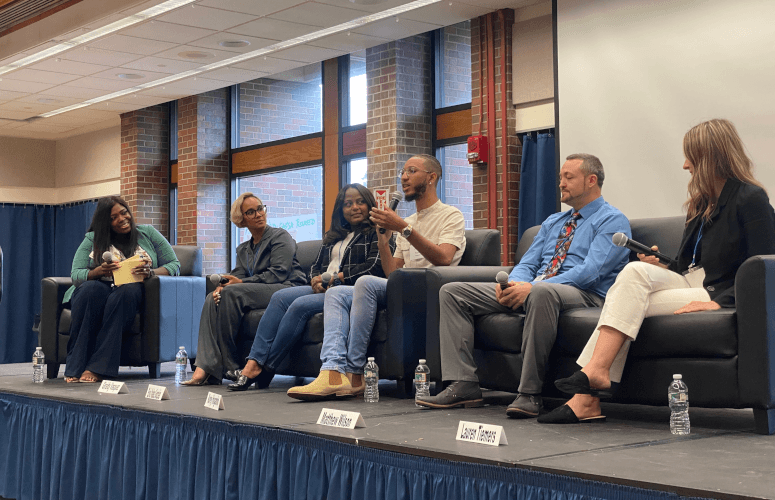
First Statewide Meeting on ‘Some College, No Degree’ Student Engagement Initiative Held
Initiative Receives Another $8 Million Investment in FY24 State Budget
On Jul 5, 2023The Office of the Secretary of Higher Education (OSHE) hosted a meeting at Middlesex College last week to discuss the ‘Some College, No Degree’ initiative, which aims to address the educational aspirations of more than 750,000 New Jersey residents who have some college credit but left school before completing their degrees. The initiative aims to provide them with the resources and opportunities necessary to return to higher education and complete their degree or credential.
“This convening focused on policy-driven conversations and emphasized the urgent need for a comprehensive strategy to support these individuals in completing their higher education journeys,” said Dr. Brian K. Bridges, Secretary of Higher Education. “Our goal is to help them overcome barriers to reenrollment, learn about newly available state resources and financial aid, and emphasize how a credential can open new doors of opportunity. By bringing together national policy leaders and campus partners, who work directly with these students, all under one roof, we hope to inspire new and amplify ongoing strategic approaches to reaching, reengaging, and reenrolling this population statewide.”
The day-long event welcomed more than 200 campus partners representing 42 New Jersey institutions of higher education and a diverse collaborative of higher education professionals with student life, advising, admissions, financial aid, and institutional research backgrounds. Guest speakers included national experts from the National Student Clearinghouse (NSC), the Institute for Higher Education Policy (IHEP), and ReUp Education. These presentations focused on the national-level data perspective, case studies from other states and institutions, and best practice strategies being deployed to engage and support students in New Jersey.
“Reengaging students with some college credits but no degree is critical to making student success more equitable,” said Amanda Janice Roberson, senior director of strategic engagement, planning, and operations at IHEP. “The obstacles that force students to stop out of college disproportionately impact first-generation students, adult students, students from low-income backgrounds, and students of color. We applaud institutions in New Jersey for committing to use disaggregated data and data-informed strategies to address these inequities and help students cross the degree-completion finish line.”
According to data from the NSC, New Jersey ranks 12th out of 50 states in the size of its ‘Some College, No Degree’ population, with 792,527 individuals who fall within the some college, no credential category. Of that population, 8.1% are considered ‘potential completers’ having made at least two years’ worth of academic progress within the last 10 years and 5.4% are recent ‘stop-out’ students who stepped away from their academic journeys in 2019 or later.
“As of July 31, 2021, the some college, no credential population grew and, at the same time, we also observed re-enrollment declines, meaning more students were stopping out and fewer returning to continue their academic progress,” said Jennifer Causey, Senior Research Associate at NSC. “The recent national data will enable institutions as a whole to consider how to get these students re-enrolled and ultimately on track to earn their first credential. Equally, institutional resources such as student advising and support services are critical to ensure student success.”
As part of the state initiative funded for the first time in Fiscal Year 2023 with $3 million, OSHE launched a partnership with ReUp Education and 17 of New Jersey’s higher education institutions to identify, reach, and engage students who have left college without completing a degree.
In New Jersey’s State Budget for Fiscal Year 2024 signed on June 30, OSHE’s statewide ‘Some College, No Degree’ initiative has received another $8 million in funding. During this second year, OSHE intends to build on the inaugural year of outreach and explore further supports that can help re-engage this priority student population to facilitate their persistence through to degree completion.
To access more business news, visit NJB News Now.
Related Articles:





